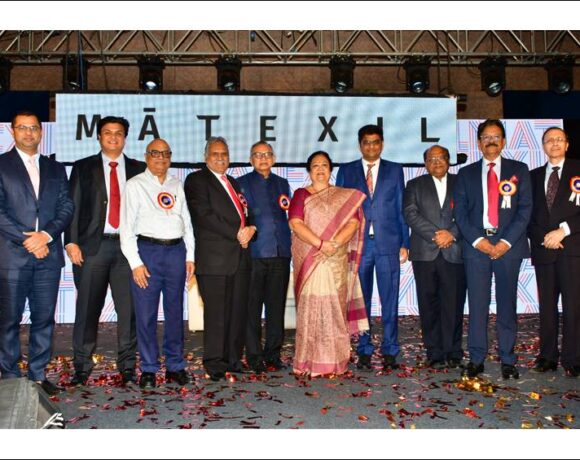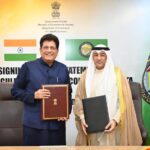Maharashtra To Lead In Technical Textiles: Virendra Singh

In a keynote speech at the 14th AGM and award ceremony of the Indian Technical Textile Association (ITTA), Virendra Singh (I.A.S.), Secretary (Textiles), Government of India, outlined the government’s vision and policies aimed at supporting and advancing the technical textile sector. Emphasizing the government’s readiness to listen to the industry, Singh positioned the government as a collaborative partner working to turn industry feedback into policy.
Collaboration Between Industry and Government
Singh highlighted the importance of collaboration between the government and the technical textile industry. He remarked, “If you are the voice, we are all ears to listen to you and translate your voice into policy.” By recognizing the unique challenges of the sector, he emphasized the need for joint efforts to propel the industry forward, referring to technical textiles as a “sunrise sector” with vast potential.
Policy Evolution and Government Support
Singh candidly discussed his journey of understanding the technical textile sector, noting that it was new to him when he joined the department. However, he quickly immersed himself in learning about the industry and developed a forward-thinking policy aimed at fostering growth.
The Secretary outlined Maharashtra’s generous incentives for standalone technical textile units, with a capital subsidy cap of Rs 250 crore, one of the highest in India. The policy includes zonal subsidies based on the region’s development level and additional incentives for units that employ over 50% women, or are led by members from SC/ST, minority communities or ex-servicemen.
The Concept of Technical Textile Parks
In a novel approach, the government has introduced technical textile parks to encourage collaborative innovation. For a park to qualify, it must have a minimum of 10 units across at least three verticals with a total investment exceeding Rs 400 crore. No single unit can occupy more than 25% of the park’s area, ensuring a balanced distribution of resources.
A significant focus is on skill development, with each park required to run a 24×7 skill development centre. The spillover of skilled human resources from these parks will benefit both the industry within and beyond the park’s boundaries. Singh announced plans to develop six technical textile parks across Maharashtra’s divisions, with equal subsidy support across all zones.
Supporting Sustainability and Energy Efficiency
In line with the government’s sustainability goals, the parks will receive subsidies for establishing solar energy facilities, with each park eligible for up to Rs 48 crore in solar energy incentives. Additional financial support is also provided for setting up effluent treatment plants and other green infrastructure, underscoring the government’s commitment to environmentally sustainable industrial growth.
Research, Development and Export Promotion
The Maharashtra government is also setting up a Technical Textile Mission aimed at positioning the state as a national and global leader in technical textiles. Singh outlined the mission’s pillars: research and development, skill development, innovation, market creation and export promotion. Each pillar is designed to support the long-term growth of the industry, with special provisions for research funding and collaboration with institutions like IIT Mumbai, BITRA and SASMIRA.
To drive market expansion, a dedicated vertical for export promotion will work to link Maharashtra’s technical textiles to global markets, facilitating growth and competition on an international scale.
Digital Transformation for Ease of Doing Business
In a progressive step, Singh announced the forthcoming launch of an e-textile portal for Maharashtra, which will streamline interactions between the industry and the government. This portal will allow businesses to track their applications, view entitlements and manage project proposals digitally. The goal is to minimize bureaucratic delays and ensure that companies can easily access the support they need to thrive. Future enhancements will include integrating artificial intelligence to provide data-driven insights to both businesses and policymakers.
A Call for Collaboration
Singh urged the industry to engage proactively with the government, assuring them that the government is ready to meet them half-way. The focus is on simplifying processes and ensuring transparency in how subsidies, incentives and other forms of support are distributed.
By creating an ecosystem of trust, collaboration and mutual support, the government hopes to position the Indian technical textile industry as a global leader—both in terms of production and innovation.















